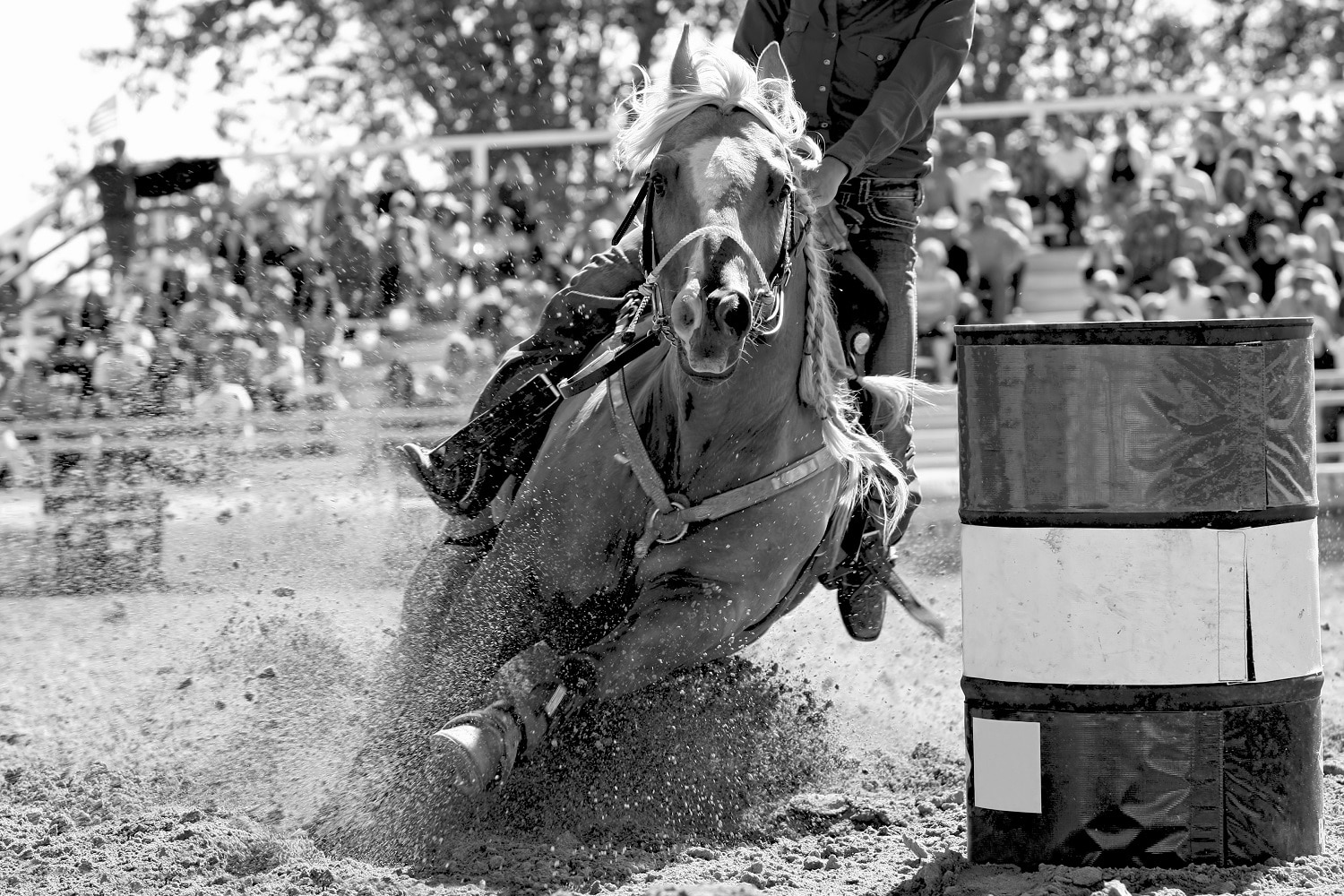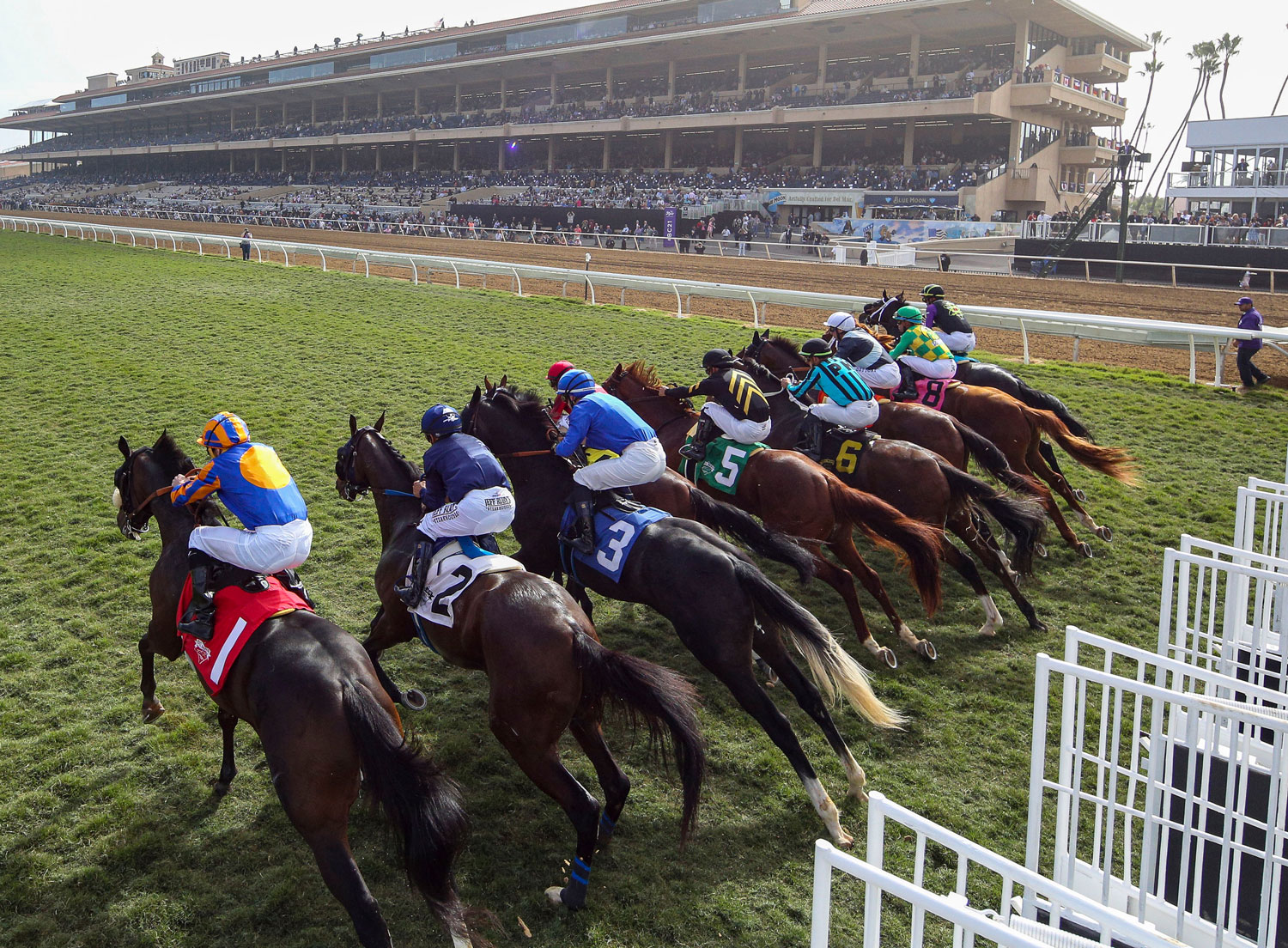The notorious “summer run” in the world of rodeo is the most demanding time of the year for competitors and their performance horses. It’s not abnormal for rodeo athletes to travel more than 20,000 miles, from Pecos, Texas, to Saint Paul, Oregon—and every state between. The peak of chaos comes around the 4th of July, the weeks fondly referred to as “Cowboy Christmas” due to the sheer number of rodeos as well as the amount of money up for grabs. During these 10 days, rodeo athletes may compete at multiple rodeos in a single day before driving through the night to get to the next event.
As you’d expect, hauling horses this extensively while making more runs than usual can be hard on a horse’s mental and physical health. It especially takes a toll on your equine partner’s gi tract health, which in turn affects nutrition, physical condition, recovery, behavior, and mental focus.
Here are some specific ways the summer run can be hard on your horse’s digestive health, and what you can do to better support and manage it.
Constant Changes During the Summer Run
One of the most challenging aspects of the summer run rodeo schedule is the multitude of changing elements the horses endure. As you move from state to state, potential shifts include:
- Type of vegetation for hay and grazing
- Availability of certain feed
- Climate
- The conditions in which you keep your horses
These inconsistencies can be enough to cause horses tremendous problems if not managed correctly.
Dietary Changes and Horses
It’s no secret that keeping your horses’ diets consistent and not making drastic changes is critical to their health. But when you’re on the road for long periods of time over dramatic distances, this can’t always be helped. You can only haul so much of your typical hay and feed with you.
Your horses might be used to being fed Bermuda hay, but maybe in the part of the world you are in you can only get coastal hay. Or you may be building portable pens at every rodeo, so your horses are consuming different grasses every time you set up camp somewhere new.
If you feed a grain that is not nationally carried, you may have to switch to the most similar feed you can find.
Most of a horse’s digestion happens in the hindgut, where forage is fermented by good bacteria in the cecum and then absorbed in the large colon. Changing feed types quickly raises the acidity of the hindgut, killing off some of the good bacteria, and causing the hindgut to become imbalanced. This can lead to medical health issues as well as negatively affect nutrition and the horse’s comfort and ability to perform. Grain feeds that aren’t fully digested in the stomach, plus changing in type, can have the same negative impacts.
Climate Changes and Horses
Adjusting to changing climates also affects equine athletes on the road. It goes without saying that the weather in Texas is considerably different than in the Northwest. Horses do not adjust to these weather changes as well as we do, and proper precautions must be in place to make sure they stay eating and drinking.
If a horse goes off feed and water, it is not only going to affect performance in the arena but the overall well-being of the animal as well. Hydration is obviously particularly critical when navigating hot environments.
Shifts in heat, humidity, precipitation, and more can impact a horse physically, but it’s also stressful for the horse to manage these changes. And elevated or prolonged stress levels can lead to a range of issues for the horse.
The Stress of Travel and Competition on Horses
Many people take for granted the stress horses undergo, just as humans do when they are put under intense pressure. Horses are on a trailer for hours, then kept in portable pens at rodeos with carnivals and people all around. This prevents them from relaxing and getting the rest they need, yet we expect them to compete to their full potential.
Stress causes a cascade of issues for the horses, including their digestive health.
With all these elements in mind, digestive health needs to be at the forefront of all competitors’ priorities. Imagine having a bellyache on top of this grueling schedule!
Support Digestive Health for the Summer Run and Beyond
The good news is there are ways to minimize the adverse effects on your animals. Having your horses primed and ready months in advance is one of the best ways to best prepare them for a busy schedule. If you are proactive with your horse’s digestive health, the challenges of extensive traveling should not affect them as harshly, if at all. However, if you wait to focus on digestive health until you are in the middle of your busiest season it might be too late.
Amid the variables, SUCCEED Digestive Conditioning Program is always the same. SUCCEED doesn’t change no matter when or where you get it, and it can help your horse’s digestion stay healthy in the face of these challenges.
Feed SUCCEED daily as a natural, nutrition-based method to maintain your horse’s total digestive health. SUCCEED works to support digestive health in many ways, including:
- Slows the transit of grain through the foregut, which equals more complete digestion. This enables them to absorb nutrients more fully and keeps undigested grain from disrupting the hindgut.
- Balances the hindgut and feeds/encourages the growth of good bacteria.
- Supports healing and recovery in the gut, as well a healthy gut lining and mucosa.
Horses know when they feel good. When they’re comfortable and have the energy and nutrition they need, their attitude on the outside might in turn be improved. They eat better, and they can be more confident and focused.
While you can pick it up at any time to start getting your horse’s gi tract health in check, ideally SUCCEED should be part of your program year-round to prepare your horses well in advance of the summer run. They need to be in top condition to travel and perform their best and to avoid injury. The longer a horse has been on SUCCEED prior to extensive hauling the better your odds are they will adjust well to all the new environments.
If you feel your horse is a high-stress animal and needs extra help when hauling versus at home, many SUCCEED users have seen great results with giving one tube of SUCCEED before loading in addition to your daily dose. Some also recommended giving it every four hours while hauling to ensure your horses are continually eating while on the trailer.
SUCCEED works alongside a strong nutritional program. Your horse can only be as good as what you feed. Take the time to really know your horses and their unique needs before putting them into high-stress environments.
Keeping Your Horses Healthy for the Summer Run
We ask our rodeo horses to compete, rain or shine, rest or no rest, and we expect them to give us a chance to win every time we send them down the alley or out of the roping box. Our horses give us their all every trip, whether it’s a 20-minute drive or a 20-hour drive to run at a muddy rodeo. We owe it to them to make sure they are healthy and happy.
SUCCEED offers a range of benefits that may show up differently from horse to horse, but there are some common results rodeo competitors share regularly. These include their horses:
- Stay full and stay drinking well.
- Are calmer while hauling and while preparing to run.
- Hair coats look healthy.
- They’re stronger in their runs.
A healthy digestive system in your horse is not only beneficial for them but for you as well. Rodeo is more competitive than ever, and a healthy horse is the difference between taking home a check and not winning a dime. Too often we have seen gold buckle dreams come to a screeching halt because horses couldn’t keep up with the demanding schedules. Let’s flip the script. A healthy horse is a happy horse, and happy horses will give 110% every time they compete.




